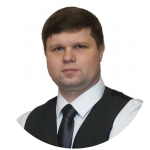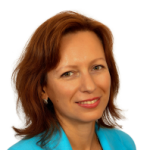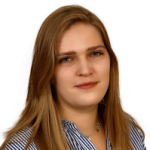F1
Applied
Mathematics
Computer and mathematical modeling
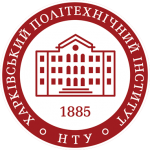
Навчально-науковий інженерно-фізичний інститут
113 Прикладна математика
Комп’ютерне та математичне моделювання
«Прикладна математика — це застосування математичних методів у різних галузях, таких як фізика, техніка, медицина, біологія, фінанси, бізнес, інформатика та промисловість. … Термін «прикладна математика» також описує професійну спеціальність, у якій математики працюють над практичними проблемами, формулюючи та вивчаючи математичні моделі. … “ (WikipediA)
“ Applied mathematics is the application of mathematical methods by different fields such as physics, engineering, medicine, biology, finance, business, computer science, and industry. … The term “applied mathematics” also describes the professional speciality in which mathematicians work on practical problems by formulating and studying mathematical models. … “
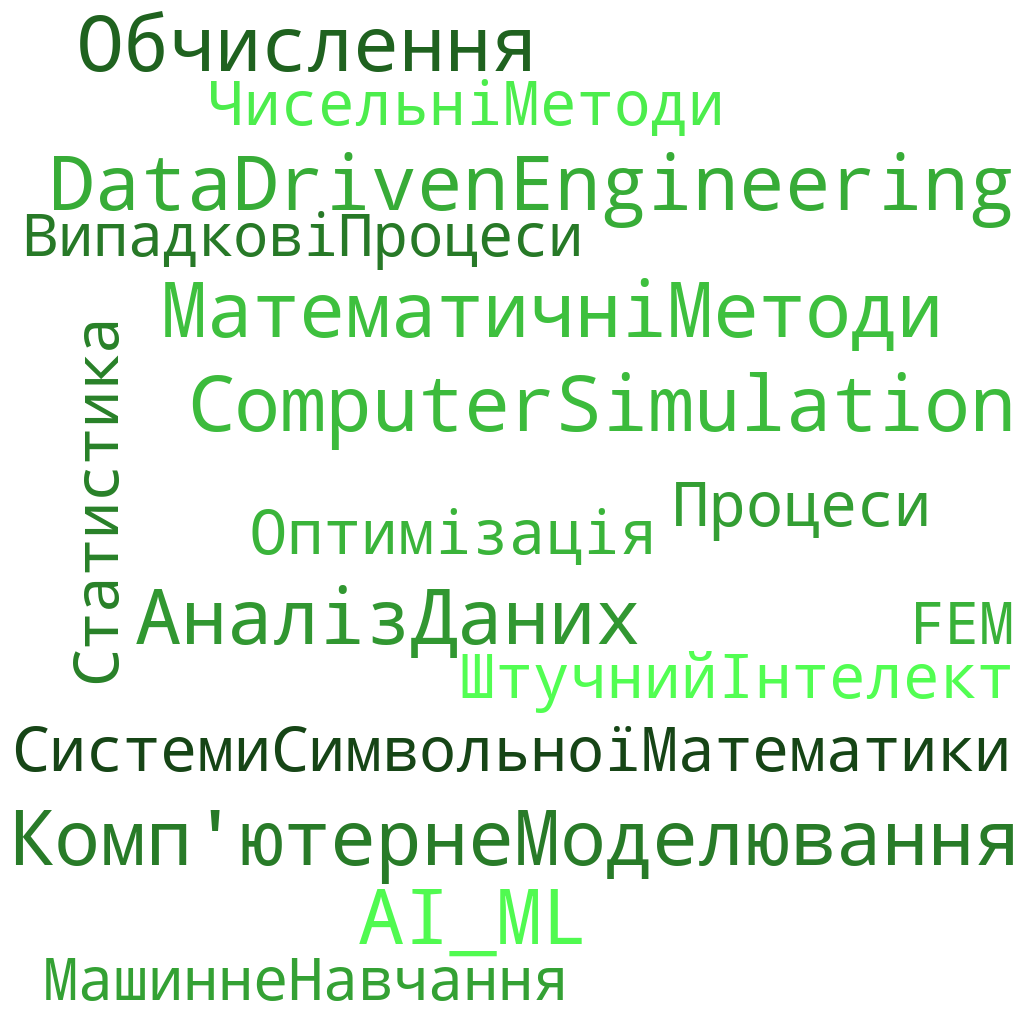
Qualification levels
Bachelor
of Applied Mathematics
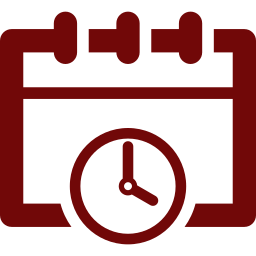
Training period
4 years / 240 ECTS credits

The form of study
full-time
characteristics of the educational program
The main focus of the educational program “Applied mathematics. Computer and mathematical modeling” is aimed at training bachelors who are able to formulate, solve and generalize practical problems using fundamental and special applied methods of mathematics and IT for modeling, analysis and processing of processes and phenomena in engineering and information systems.
It is a bridge between the real world and mathematical and computational models. The latter is the fundamentals of computer modeling, the development and use of digital twins and avatars, which is shaping a new era of technology as well as communications. It is important to emphasize that this bridge has a two-way road, so applied mathematicians are conductors from reality to algorithms and formulas, as well as reverse conductors from received models and mathematical regularities to reality.

Features of the program
ICM uses the Project form in educational processes. Starting from the 3rd year, there are mandatory team project works - on tasks proposed by employers;
We actively cooperate with engineering consulting centers and IT companies that need specialists in the field of computing and data science, in particular, we attract mentor speakers to teach technological disciplines;
Opportunities for academic mobility to EU universities (annually from 1 month to 1 semester for 2-5 best students), annual L. Euler scholarships since 2001.
From 2022, additional DAAD scholarships for senior students;
Graduates of this specialty are active researchers working throughout Europe, 10-15% of graduates receive scientific degrees.
Our teachers are highly qualified professionals, practitioners with extensive experience and seniority, who are ready to transfer their knowledge, skills and provide high-quality training to students of higher education in the field of mathematics and statistics, taking into account the specifics of today's labor market, national standards and international requirements.
Professor LVOV HENNADII Doctor of Engineering (guarantor of the bachelor’s educational program) Professor of the Department of Mathematical Modeling and Intelligent Computing in Engineering |
Professor LARIN OLEKSII Doctor of Engineering (guarantor of the master’s educational program) Director of the Educational and Scientific Institute of Computer Modeling teaches courses: Theory of probability and mathematical statistics, Machine learning, Modeling of dynamic processes, Analysis of random processes and signals |
Professor KURPA LIDIIA Doctor of Engineering Professor of the Department of Applied Mathematics |
Professor MIKHLIN YURII Doctor of physical and mathematical sciences Professor of the Department of Applied Mathematics |
Professor MARTYNENKO HENNADII Doctor of Engineering Professor of the Department of Mathematical Modeling and Intelligent Computing in Engineering teaches courses: Databases, Data mining |
Professor SYMSON EDUARD Doctor of Engineering Professor of the Department of Mechanics of Continuous Environments and Resistance of Materials |
ROZOVA LIUMYLA Candidate of technical sciences Associate Professor of the Department of Mathematical Modeling and Intelligent Computing in Engineering teaches courses: Object-oriented programming, Databases | POTOPALSKA KSENIIA Candidate of technical sciences Associate Professor of the Department of Mathematical Modeling and Intelligent Computing in Engineering teaches courses: Statistics on Phython, Machine learning, 3D drawing |
TYSHKOVETS OLENA Candidate of technical sciences Art. teacher of the department of mechanics of solid media and resistance of materials | VIAZOVYCHENKO YULIIA Candidate of technical sciences Associate Professor of the Department of Mathematical Modeling and Intelligent Computing in Engineering teaches courses: Mathematical logic and data structures, Neural networks, Optimization methods |
Освітня траєкторія (спеціалізація) – Програмне забезпечення системного проектування
Навчання за спеціалізацією кафедри поєднує якісну класичну інженерну освіту з розв’язанням реальних прикладних та наукових задач сучасними засобами.
Основні навчальні дисципліни
Чисельне моделювання в аерогідромеханіці
Аналітична механіка та теорія коливань
Комп'ютерне забезпечення експериментальних досліджень
Моделювання нелінійних динамічних процесів в механіці
Методи оптимального проектування та управління
Спеціальні питання моделювання теплопровідності
Дізнатися більше про освітню траєкторію – Програмне забезпечення системного проектування на сайті кафедри
Graduates' suitability for employment and further education
Graduates work in the largest Ukrainian and global IT companies and engineering consulting firms as researchers and engineers engaged in software design and development, computer modeling of various processes that are formed in mechanical systems and in modern new technology. The following companies have the greatest demand for our graduates: SoftServe, NIX-solutions, GL, EPAM, Progressech Ukraine, BOEING, BIIR, SoftInWay, Aktualna Mechanika, UPEK and many others.
You can find out more about companies and enterprises that offer employment for graduates of our institute, as well as get acquainted with the requirements, duties and skills of candidates for current vacancies, by following this link.
Graduates can continue their education at the next (master’s) level of higher education in the relevant educational-professional or educational-scientific programs.
What do our graduates say?
Are you interested in the opinion of those who have already received an education in Applied Mathematics? We really value our graduates and their feedback about our work. Read their stories below to get a more complete picture of their studies, subsequent employment, and how the knowledge and skills acquired at university have helped them in life and work. Probably, the reviews of our graduates will inspire you and help you choose a specialty.

BER OKSANA (OZHOHA-MASLOVSKA ) (graduated in 2009)
APWORKS Airbus Group GmbH, (Hamburg, Germany), project engineer
A strong program of training in the theoretical foundations of strength and a very good mathematical base. Excellent teaching of software complexes (ANSYS), with the help of this knowledge I learned other PCs without problems in further work. I would especially like to note the talented teachers at the Department of Dynamics and Strength of Machines and Applied Mathematics, who, in addition to teaching, were also involved in scientific activities. And practice in Germany opened up many professional opportunities for me. I recommend that you look at vacancies already during your studies, see what skills / knowledge are needed in real life. Asking myself what I like about learning and what I don't. What works particularly well and what is difficult. You can become a good specialist only by working with pleasure.

ARTEM РUDENKO (graduated in 2013)
Boeing Ukraine (the city of Kyiv), lead engineer, strength department
I was taught by high-level teachers who do not forget about modern methods, information and theory. I believe that it is necessary to be more demanding of students in order to raise the general level of preparation of students after graduation, graduates with weak knowledge of the specialty greatly change the prestige of the department and the higher institution. The theoretical knowledge gained and the engineering logic acquired at the university turned out to be the most useful in the work. Students, learn for yourself, not for grades, and then you will become real professionals!

SERHII NAUMENKO (graduated in 2018)
Sigma, Web Developer
I went to university with the goal of becoming a professional developer - it was a dream that I managed to achieve. In recent years, the department has grown significantly in a professional sense and, I believe, today provides comprehensive knowledge that meets modern requirements. At first, in the first courses, it was not clear why some basic mathematical knowledge, the justification of their application, information technology knowledge was not enough. Don't think that you won't need some knowledge from the training program, because almost everything I learned was useful and necessary. I advise all future students to set a professional goal and go for it, and the department and teachers will help you in this.

DMYTRO PIVOVAROV (graduated in 2012)
University of Erlangen-Nuremberg
Such teachers as Iglin, Mikhlin, Fedorov, Simson and others not only know their subject at the highest level, but also helped me to find my own scientific path. In my work, I use the acquired programming skills, the use of ANSYS, computational methods, and knowledge of solid environment mechanics. Students, have initiative and a plan for the future. Don't expect everything to be given to you. Be interested in the subject you would like to study. Find out about competitions, scholarships and awards yourself. There are many opportunities: the Euler scholarship, German courses with a mandatory visit to Austria, there are employment opportunities, there is the opportunity to find a job in Europe. Learn modern development and programming environments.

DMYTRO BESCHETNIKOV (graduated in 2015)
Joint-stock company "NCV Mila and Kamova", head of the fatigue strength and vibration brigade
I would like to note the strong fundamental training and high professionalism of the teachers. After graduating from the university, fundamental knowledge of mathematical analysis, physics, theory of elasticity, theory of vibrations, theory of composite materials, work with ANSYS, SolidWorks software, and programming skills came in handy. I would like to further develop the study of the theory of composite materials and the theory of destruction. And I advise students to selflessly study, not stop at what they have achieved, learn new things, set a goal for themselves and go for it.
Graduates' satisfaction with education and training in the specialty
57,2%
★★★★★
35,7%
★★★★
7,1%
★★★
0%
★★
0%
★
Overall satisfaction with learning
68,5% (13)
42,9%
★★★★★
35,7%
★★★★
21,4%
★★★
0%
★★
0%
★
Relevance of the specialty
68,5% (13)
64,3%
★★★★★
35,7%
★★★★
0%
★★★
0%
★★
0%
★
Quality of training in the specialty
71,4%
★★★★★
28,6%
★★★★
0%
★★★
0%
★★
0%
★
Objectivity of knowledge assessment
How quickly after graduation did our graduates manage to get a job?
Even during the diploma project
Almost immediately
During the year
During the first three years
It took more than three years
If you are our graduate, leave your feedback, it is important for us to hear your opinion. Please fill out , this survey form.
We are on social networks:
РОЗРАХУНОК КОНКУРСНОГО БАЛУ для вступу на спеціальність 113 Прикладна математика
КБ = 0,3×П1 + 0,35×П2 + 0,25×П3 + 0,1×А
П1 – оцінка з української мови
П2 – оцінка з математики
П3 – оцінка з фізики або іноземної мови
А – середній бал атестата
Остаточно конкурсний бал (КБ) множиться на додаткові коефіцієнти. Регіональний 1,02 – для міста Харкова. Сільський 1,02 – для осіб, зареєстрованих у селах та які здобули повну загальну середню освіту у закладах освіти у рік вступу, що знаходяться на території сіл.

